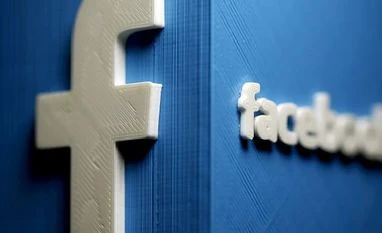Delhi Legislative Assembly and its committee have the power to compel attendance of members and outsiders on grounds of its privilege, the Supreme Court held on Thursday while observing that digital platforms like Facebook have become power centres with ability to influence opinions and will have to remain accountable.
Entities like Facebook, which has around 270 million users in India, have to remain accountable to those who entrust them with such power, the apex court said and dismissed the plea filed by Facebook India Vice President and MD Ajit Mohan and others challenging the summons issued by the Delhi Assembly's Peace and Harmony committee for failing to appear before it as witness in connection with last year's north-east Delhi riots.
While acknowledging the distribution of power, it said that though law and order and police do not fall under the legislative domain of Delhi Assembly, in the larger context the concept of peace and harmony goes much beyond that.
It said in any case, the representative of the social media giant would have the right to not answer questions directly covered by these two fields.
A bench headed by Justice S K Kaul said while Facebook has played a crucial role in enabling free speech by providing a voice to voiceless and a means to escape state censorship, it cannot lose sight of the fact that it has simultaneously become a platform for disruptive messages, voices, and ideologies.
The bench, also comprising Justices Dinesh Maheshwari and Hrishikesh Roy, said that members and non-members can equally be directed to appear before the committee and depose on oath and Facebook cannot excuse itself from appearing pursuant to the new summons issued to them on February 3, 2021.
Also Read
We are of the view that in any eventuality, as speculative as it may be, if the Committee seeks to traverse the path relating to the excluded Entries, i.e. law and order and police, any representative of Facebook who would appear before the Committee would be well within their right to refuse to answer the query and such an approach cannot be taken amiss with possibility of inviting privilege proceedings, the bench said in its 188-page verdict.
It said that digital platforms can be imminently uncontrollable at times and carry their own challenges.
One form of digital platforms are the intermediaries that claim to be providing a platform for exchange of ideas without any contribution of their own, it said.
The top court noted that on August 31 last year, chairman of committee Raghav Chadha held a press conference and stated that it prima facie appeared that Facebook had colluded with vested interests during Delhi riots in February 2020.
The aforesaid statements and conclusions are completely outside the remit of the Committee and should not have been made. That it may give rise to apprehension in the minds of the petitioners can also not be doubted, it said.
It said such statements are hardly conducive to fair proceedings before the committee and should have been desisted from.
It said there is no dispute about the right of assembly or the committee to proceed on grounds of breach of privilege per se and the power to compel attendance by initiating privilege proceedings is an essential power.
In the given facts of the case, the issue of privileges is premature, the bench said, adding, Canvassing a clash between privilege powers and certain fundamental rights is also pre-emptory in the present case.
The Assembly does not only perform the function of legislating; there are many other aspects of governance which can form part of the essential functions of the Legislative Assembly and consequently the Committee. In the larger context, the concept of peace and harmony goes much beyond law and order and police, more so in view of on-the-ground governance being in the hands of the Delhi Government, it said.
It said technological age has produced digital platforms - not like the railway platforms where trains were regulated on arrival and departure.
By the very reason of the platform they provide, their influence extends over populations across borders. Facebook is one such corporation, it said.
In the national context, Facebook is the most popular social media platform in India with about 270 million registered users. Such vast powers must necessarily come with responsibility. Entities like Facebook have to remain accountable to those who entrust them with such power, the bench said.
It said that election and voting processes, the very foundation of a democratic government, stand threatened by social media manipulation.
Facebook today has influence over 1/3rd population of this planet! In India, Facebook claims to be the most popular social media with 270 million registered users. The width of such access cannot be without responsibility as these platforms have become power centres themselves, having the ability to influence vast sections of opinions, it said.
In the conspectus of the aforesaid, it is difficult to accept the simplistic approach adopted by Facebook - that it is merely a platform posting third party information and has no role in generating, controlling or modulating that information," it said.
It noted that the central government and state government have been unable to see eye to eye on governance issues in Delhi and this has been responsible for a spate of litigations and despite repeated judicial counsel to work in tandem, this endeavour has not been successful.
(Only the headline and picture of this report may have been reworked by the Business Standard staff; the rest of the content is auto-generated from a syndicated feed.)
)